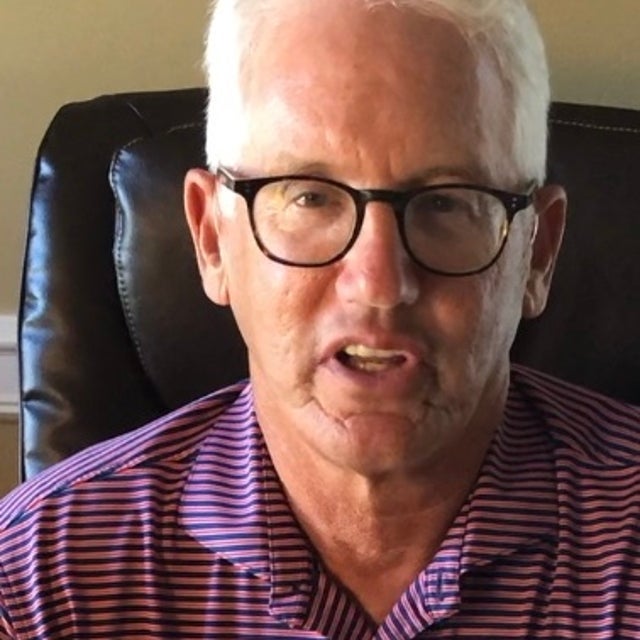Americans who voted for Trump in 2016 reveal whether they’re doing it again in 2020
Throughout a yearlong voter profile series, Americans revealed their thoughts on Donald Trump’s presidency, defending their votes for the president and revealing if they plan to cast a ballot for him again in 2020


Your support helps us to tell the story
From reproductive rights to climate change to Big Tech, The Independent is on the ground when the story is developing. Whether it's investigating the financials of Elon Musk's pro-Trump PAC or producing our latest documentary, 'The A Word', which shines a light on the American women fighting for reproductive rights, we know how important it is to parse out the facts from the messaging.
At such a critical moment in US history, we need reporters on the ground. Your donation allows us to keep sending journalists to speak to both sides of the story.
The Independent is trusted by Americans across the entire political spectrum. And unlike many other quality news outlets, we choose not to lock Americans out of our reporting and analysis with paywalls. We believe quality journalism should be available to everyone, paid for by those who can afford it.
Your support makes all the difference.Some were pleasantly surprised by his hard-line agenda on issues like immigration and the economy — others, not so much.
If there is any overarching theme for the nearly four years of President Donald Trump’s tenure in the White House, it has been securing his own re-election come 2020.
The president signed the paperwork to begin fundraising for his next campaign almost as soon as he was inaugurated, then almost immediately began to act on some of the most controversial vows he made to his right-wing base during rallies in 2016.
From a travel ban on Muslim majority nations — which sparked protests across the country — to building a wall along the US-Mexico border, Trump has sought to make his presidency all about delivering to his supporters the conservative, anti-immigrant policies they longed for. In many cases, it worked.
Trump enjoys historic popularity within the Republican Party, and polls show him sustaining support among blue-collar white males and other non-college educated Americans. But polls never tell the whole story. For that reason, I launched the yearlong series, Polarized: Voices From Across America, which profiled voters in all 50 states, as well as Washington DC and Puerto Rico.
Polarized was an original, 52-week series spanning the entire United States. Click here to listen to a podcast on Spotify featuring several voters from the series in key states discussing their top concerns just days before the election. To read more from this series, click here.

The weekly project featured voters like Rob Carpenter, a swing voter in Florida who says he has voted for the winning candidate in every presidential election he’s voted in. That includes both Trump and his predecessor, former President Barack Obama.
This year, Carpenter says he’s “100 percent” sticking with his vote. When we spoke for the project back in December of 2019, he already seemed to have identified Biden as the Democrat who would secure the party’s nomination. And he wasn’t impressed.
“Biden is burning out,” he said. “He just doesn’t have it this time ... I don’t see a strong candidate that will be able to counteract Trump. So, right now, I’m still with him.”

Dennis Berry is another supporter of the president who plans to vote for him again in 2020, despite Trump’s divisive rhetoric making Berry uncomfortable.
As an alderman, Berry has been tasked throughout his time in office with rooting out cyberbullying among youth in his local community. The issue hit especially close to home when, he said, a teen killed themselves after suffering from bullying in the area.
“I may get in trouble with some of my Republican counterparts,” he said. “I believe [Trump] uses the bully pulpit, and I don’t agree with the name-calling, the way he speaks to people and treats people in general, I just don’t agree with that — but as far as policy, most of the policies I agree with.”
The conservative voter cited Trump’s record on the judicial system and other key issues as part of the reason why he was backing the president again.
But not everyone who voted for Trump was standing by his side at the ballot box.

Marie Garofalo, a once self-described “indignant” Trump supporter, began worrying for the future of the country and what her generation would leave behind for her kids when it came to critical issues like the environment, women’s reproductive rights and more.
“I started to become more informed about everything that was going on within the administration,” she explained, citing help from her husband and youngest daughter, who would “constantly” send her news articles.
“I’m not polished, I’m not political, I’m just a mom-slash-housewife-slash-person-who-lives-here, and I have a lot of values,” Garofalo said. “Over time, what happened with Trump was that I became more aware of what bothered me.”
Garofalo is now voting for Biden for president, and said she had her family to thank for the change in heart. Her husband and kids — all of whom voted for Hillary Clinton in 2016 — kept her in the loop with the goings-on of Washington and how Trump’s agenda was being implemented across the board, from a rollback of regulations at the Environmental Protection Agency to the influx of conservative judicial appointments, many of whom appeared to reject expanding women’s access to safe and legal abortions.
She added: “I think if we can find a way to have meaningful discussions with people, without getting crazy, irate, just listen … people can change.”
As the year — and our project — went on, polls showed Trump losing key support among independents, a crucial voting bloc in his race against former Vice President Joe Biden. Meanwhile, a swell of support emerged for the Democratic nominee among current and former Republicans, as well as independents.
Several prominent groups were formed to represent this newfound voting bloc, from Republican Voters Against Trump, to the Lincoln Project.

Jay Copan, an independent who voted for Trump in 2016, was one of the folks recruited by those groups in his swing state of North Carolina to urge other residents to vote against the president this time around.
Copan considers himself socially and fiscally conservative.
“I have voted in 12 presidential elections, and 10 of those times I have voted for the Republican candidate,” he said. “The last Democrat I voted for was Jimmy Carter in 1976.”
Trump’s slow response to the coronavirus pandemic and his lack of leadership surrounding racial tensions in the US after the police-involved killing of George Floyd ultimately led Copan to decide he will vote against the Republican incumbent in the upcoming elections, he explained.
“I voted for Trump in 2016, and I absolutely will not be voting for him in 2020,” he said. “I haven’t voted for a Democrat since 1976 – but I’ll be voting for Joe Biden in 2020.”
Whereas Biden has spent his time along the campaign trail casting a wide net in order to pull support from independents, third-party voters and Democrats alike, the president has continued to feed his base in the hopes they will turn out in droves come Election Day.
That’s exactly why Copan — someone who was perfectly placed to vote for Trump again in 2020 — now considers himself the president’s “worst nightmare.”
While some Americans disavowed the president’s rhetoric but continued to support him, others accepted it as a necessary evil. In fact, some even reveled in Trump’s abandonment of the presidential proprieties the nation had become accustomed to.

Mary Burkett, a Republican Trump supporter, was so energized by the president’s 2016 election — and equally frustrated with what she said was a lack of accountability surrounding the nation’s debt — that she decided to run for Congress.
A lifelong Utah conservative, Burkett explained why some voters were comfortable with the president’s tone on Twitter and elsewhere.
“Donald Trump is a junkyard dog, and we’re OK with that," Burkett said. "We’ve tried electing people who are dignified and have decorum, they care about all of the formalities and protocol, [but] they didn’t do — with the exception of Reagan — very much of what they said they were going to do.”
For more voter profiles, check out the full series, Polarized: Voices From Across America.
Join our commenting forum
Join thought-provoking conversations, follow other Independent readers and see their replies
Comments